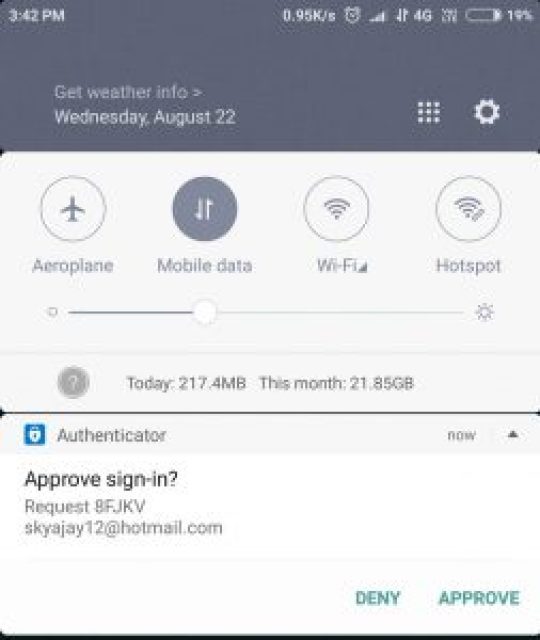Your One Drive data is important. Secure it full-proof.
Contd… from the previous blog “Why only 5% users fully secure their Gmail Account?“.
It’s important to secure Emails & cloud storage in today’s world. Microsoft offers three ways to set up two-step verification (MFA). You can use a secondary email address, phone number or you can also opt to configure an authenticator app. Once two-step verification is set up, every time you sign in from a new location or on a new device, you’ll be prompted a security code to prove that you’re, who to say you are.
Practical: (Takes maximum of 30 seconds to complete all steps):
1) How to Enable MFA for your Hotmail Account?
a) Login to Hotmail.com or Outlook.com.
b) Click at top right corner (your display name) and click “View Account”.
c) Click Security – Update.
At the bottom of the page click “More Security Options”.
d) It will ask your mobile numbers’ last 4 digits associated with your Hotmail account’s and will send a verification code on it.
e) Enter the code received on your mobile to open Additional Security Options.
f) Set up two-step verification – Proceed with on-screen instructions & click Finish.
Congratulations your two-step authentication is enabled on your Hotmail account as well.
Lets quickly see the result as well:
User opens hotmail.com or outlook.com & login with his username & password.
Note: If you see an “incorrect password” error on Mail App in Mobile or Outlook or any other device after you turn on MFA (two-step verification), but you’re sure your password was correct, that means you’ll need an app password for that app or device.
Some apps (like the mail apps on some phones, Outlook) or devices (like the Xbox 360) cannot prompt you to enter the Security Code when you try to sign in. Hence they require an App Password. To generate the App Password for Hotmail Account click here. Click “More Security Options” at the bottom of the page.
Click On Create a New App Password. The next screen will show auto-generated password which can be copied and pasted in the Outlook Hotmail Account popup window after enabling MFA.
App passwords are only available if you use two-step verification. If you don’t have two-step verification turned on, you won’t see the App passwords section on the Additional security options page.
To Be Contd…
Thanks,
Ajey Kumar Gupta.
(Microsoft Engineer)










